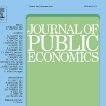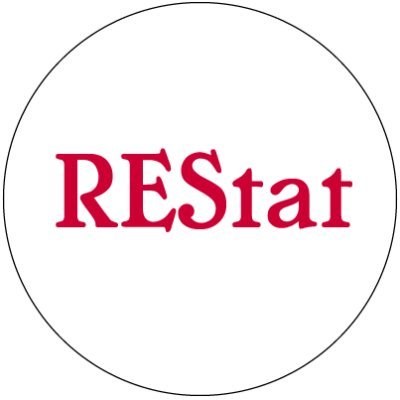
Riley Wilson
@1rileywilson
Followers
408
Following
304
Media
12
Statuses
92
Labor and Public Economics Professor at BYU
Provo, UT
Joined May 2018
Haley Wilbert (@wilbert_haley) is an applied microeconomist with interests in demography, health, history, and labor. Her JMP is "After the Cut: Cesarean Delivery and Subsequent Fertility." She also has a publication in Explorations in Economic History.
sites.google.com
Email: [email protected]
0
7
17
Families responded to pronounced full-day kindergarten expansions across the US over three decades with increases in employment among moms and decreases in childcare expenses for families, from @chloergibbs, Jocelyn S. Wikle, and @1rileywilson
https://t.co/HTd022Z42C
7
7
14
Also I will be presenting this tomorrow at the @CESifoNetwork labor area conference and @chloergibbs is presenting it at @nberpubs summer institute children’s if you are around and want to see it!
0
1
6
Check out this thread from my coauthor @chloergibbs! We study how one of the most wide spread public education investments -the transition to full-day K- affects maternal labor supply and family decisions in the US. It has been great to work with @chloergibbs and @JocelynWikle!
🚨 New working paper alert!! 🚨 In work w/ @JocelynWikle and @1rileywilson, we study the policy that’s been the most prominent form of public education investment in young children—full-day kindergarten expansions—over last 3 decades in the U.S. https://t.co/f8AeiElYEp 1/13
1
4
16
Took me a long time but finally finished @kearney_melissa’s “The Two-parent Privilege”. Wow. Such a valuable contribution to help us think about unequal resources for kids. She has started a needed conversation of how society can foster more resources (time and money) for kids!
3
5
22
Welcome Riley Wilson to our network - we are looking forward to future cooperations with @BYU @BYUecon - check out Riley's Twitter profile @1rileywilson and the CESifo Research Network website: https://t.co/1Lvda1wMzS
1
4
19
Really excited to be a part of @CESifoNetwork, I went to the labor conference this summer organized by Gordon Dahl, Helmut Rainer, and Panu Poutvaara, and it was excellent! Looking forward to more productive interactions and collaborations!
3
0
16
Thank you for your support @UpjohnInstitute, this is such a great opportunity!
0
0
3
Thanks @tyleransom! This is been a fun project, look forward to any thoughts or feedback
Fascinating new migration paper by @1rileywilson: state lines (which are arbitrary geographic boundaries) have large impacts on where people move. https://t.co/6SrwQXq4L8
0
0
2
Recently published short paper in the @JPubEcon : "Workplace Disruptions, Judge Caseloads, and Judge Decisions: Evidence from SSA Judicial Corps Retirements" Vol 205 (Jan 2022) by Clayson Shumway (@runawayshumaway ) & Riley Wilson (@1rileywilson ) https://t.co/kDl8unHw0j
1
5
4
Hey #EconTwitter, I have an excellent undergrad who has been my TA for 2 years. She loves teaching but doesn't think the PhD route is right for her. She likes the idea of teaching at the high school or community college level but not sure how to prep. Any advice how to do that?
8
9
25
Agreed! The @iza_bonn migration conference was great! I met so many talented researchers across the world. There was work exploring the impact of immigration on local labor markets, innovation, occupation down skilling, income inequality, and more! You should look at it!
@marcjosefwitte @e_arenasarroyo @GovindYajna @LaDelgadoP @jeremy_lebow @drescamillag @J_ArellanoBover @1rileywilson @marcjosefwitte Thank you for organizing such a wonderful conference!
0
0
4
If we focus on SSDI “hotspots” with high SSDI rates, we see evidence of larger SSDI enrollment effects and e-pop effects. Upshot? Interactions between supply and demand factors, or policy and shocks, can have significant long-term effects-- hysteresis! See paper for more!
0
0
3
Focusing on neighboring zip codes we trace out changes in SSDI enrollment and e-pop after the GR. Places with larger hassle costs see smaller increases in SSDI that persist (left). Effects concentrate in places with worse GR shock. Impacts on e-pop are imprecise (right).
1
0
1
SSDI applicants who are denied can appeal and the case goes to a Hearing Office *based on zip code of residence*. Across Hearing Offices there is variation in appeal wait times so people in neighboring zip codes could face difference hassle costs of applying to SSDI (ex: LA cnty)
1
0
0
We examine if the interaction between SSDI access (labor supply) with cyclical shocks (labor demand) lead to additional, persistent changes in employment incentives and rates. We examine how differences in SSDI appeal wait times when the GR hit affect SSDI enrollment and e-pop.
1
0
1
As employment rates have fallen there has been a growing literature looking at the role of specific labor demand- or supply-side factors. Things like trade & robots or video games & disability insurance (SSDI). But what about interactions between demand and supply factors?
1
0
0
Hi #econtwitter! Excited to share a new paper with @kearney_melissa and Brendan Price, forthcoming at AEA P&P released as an @nberpubs today! https://t.co/ENBkf9VF7R “Disability Insurance in the Great Recession: Ease of Access, Program Enrollment, and Local Hysteresis” A thread—
2
9
24
Thanks @restatjournal! When people are exposed to the EITC through new state EITC intro, their friends in other states, not impacted by the change, start claiming the EITC more strategically by claiming more self employment and reporting income near the refund maximizing region
People start claiming the EITC more strategically when their out-of-state social network faces new state EITCs. Just accepted new paper by Riley Wilson @1rileywilson. https://t.co/c7TCCsfPgQ
0
1
10









